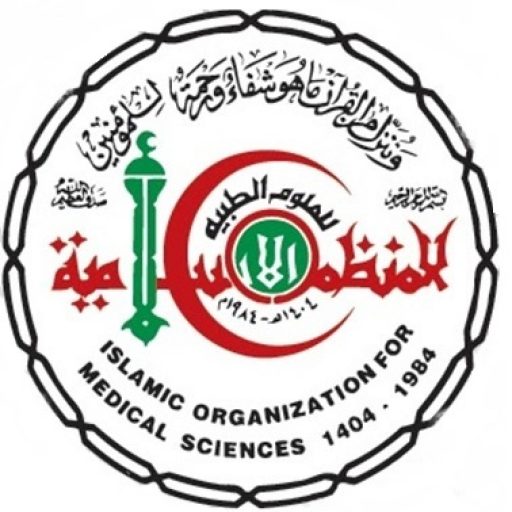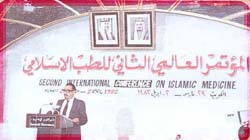|
The Second International Conference on Islamic Medicine
It was held in Kuwait under the patronage of His Highness the Amir, Sheikh Jaber Al Ahmad Al- Sabah during the period from 4th Jumada II to 8th Jumada, 1402 Hijri (March 29 to April 2, 1982) and was attended by a great number of notable scholars and scientists. A host of scientific topics were put forward for discussion in the conference seminars. The system of commentators innovated in these seminars was quite effective in encouraging vivid discussions. The conference concentrated on specialized topics in the field of tradition without neglecting applied research and legal aspects.
The seminars held during this second conference touched on themes related to the importance of spiritual and religious aspects in medical treatment, the contribution made by Muslim scientists to developing anatomy and surgerey, the influence of Islam on various civilizations, and such pioneers of Islamic medicine as Ibnul Nafees and Abul Qassim Al-Zahrawi.
The conference also witnessed a number of applied studies on therapeutic methods mentioned in the Quran and Sunna, and on the accomplishments of Muslim physicians. There were also seminars on the benefits of using medicinal plants for treating certain diseases, and on the extent to which programmes of medical education are related to Islamic teachings. At the closing session of the conference, the prizes and grants offered by the Islamic Organization for Medical Sciences were announced.
The recommendations of the second conference set on record gratitude and appreciation for Kuwait: Amir, government and people for hosting the conference and patronizing the Islamic Scientific rising, and expressed satisfaction at the steps taken to give the Islamic Organization for Medical Sciences its legal entity.
The recommendations also included the following:
– Holding the conference bi-annually at one of the Islamic countries;
– Setting up a fund for Islamic medicine with subscriptions from Islamic countries, various concerned establishments and individuals to cover the Organization activities.
Certain recommendations were set aside for the field of medical practice and research work, while others were meant for the field of Islamic heritage, and still others for the field of medical education.
The conference stressed the importance of mapping out the health conditions in the Islamic World and defining its health problems and indicating ways of mutual cooperation among Muslims. It also recommended the study of medicinal plants and the setting up of an Islamic company for the preparation and production of herbal drugs.
The conference laid emphasis on verifying and editing traditional works on medicine, preparing a comprehensive index of the manuscripts on Islamic medicine, and establishing a library for books, researches and academic theses related to Islamic medicine.
It was also recommended that the policy for education throughout all its stages should be of an Islamic nature and should have an Islamic purpose. The conference alluded to the importance of preparing the faithful Muslim physician, attesting medical jurisprudence and clarifying jurisprudent provisions with a view to keeping medical practice within the Islamic legal bounds.
Finally, the conference recommended that Kuwait’s Project for a Code of Islamic Medical Ethics should be widely published and taught at medical schools and that the oath proposed in this Project should be approved and adopted. |
|

 Islamic Organization for Medical Sciences [IOMS]
Islamic Organization for Medical Sciences [IOMS]

